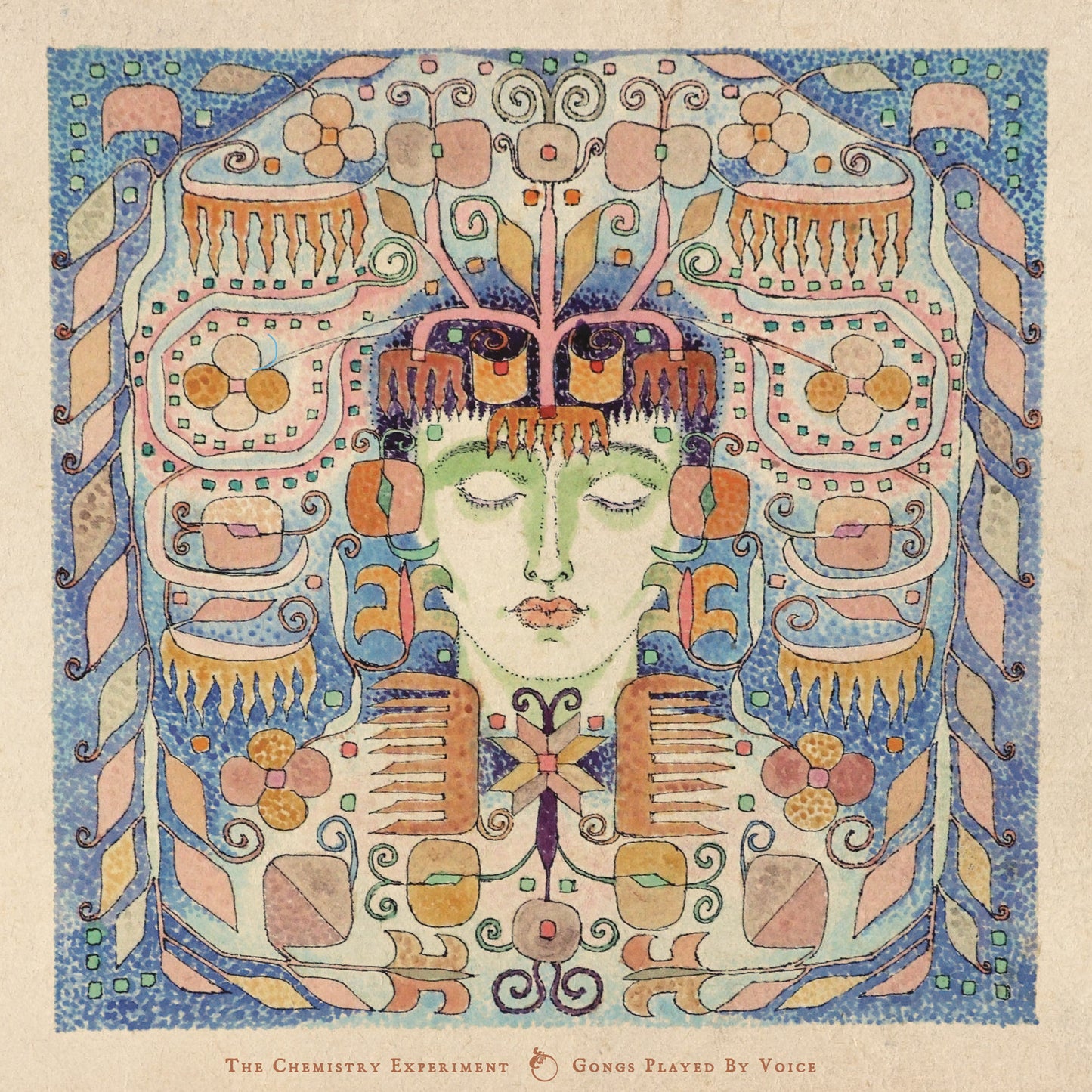The Chemistry Experiment 'Gongs Played By Voice'
The Chemistry Experiment 'Gongs Played By Voice'
Fortuna POP!
Couldn't load pickup availability
Prog-influenced Nottingham quintet The Chemistry Experiment are set to release their second album, the intriguingly titled 'Gongs Played By Voice', through Fortuna POP! in January, some ten years after the release of their debut album 'The Melancholy Death Of - ¦'. Housed in beautiful artwork by the Bulgarian artist Gyukov, a set designer in communist Bulgaria, the new album sees the band conclude the transition from their indie roots with nine beautifully arranged and recorded songs that encompass such influences as Will Oldham/Bonnie Prince Billy, Tindersticks, King Crimson and Soft Machine.
Formed by songwriter Steven J. Kirk (vocals, guitar) and Paul Stone (bass) and completed by Emily Kawasaki (keyboards), Lee Tombs (flute, vocals) and Martin Craig (drums), two of the band have long since departed from their Nottingham origins with Kirk now resident in Bologna, Italy and Kawasaki living in Brighton where she plays in krautrock grrrlgruppe Slum Of Legs. The release of 'The Melancholy Death Of - ¦' in 2005 saw critical if not financial success with the NME awarding the record 8/10 and describing it as 'Strange, gargantuan rhythms, weird instrumentation and a singer who sounds like Kurt Wagner under ten feet of snow'.
If the geographic dispersion of the band wasn't challenging enough, in 2009 drummer Craig was diagnosed with MS. 'It has made drumming somewhat tricky', he says.'I still gnash my teeth to the rhythm of the music though, and I feel honoured to join the company of Ronnie Lane, Clive Burr, and Don van Vliet.' All of which may go some way to explaining the My Bloody Valentine-like gestation of their second album, although Tombs posits a more positive explanation, saying, ' Difficult second albums'are difficult because people spend 5-10 years gathering up what they need for the first, and then have to knock out the next one in a matter of months. We overcame that problem by taking ten years.'
Loosely based around the theme of seasons, elements and the sea, the album opens with the wondrous 'Hung Lam', followed by the track 'Rainy Day', on which Stone employed the little known technique of water percussion. 'Martin and I started swirling water in saucepans and tapping the edge of the pan to make the woooo noise. I'd heard something similar on an Edith Piaf record'.
The fantastically catchy 'Leo & Magician' has an even more fantastical plot. 'It's about a scarecrow who runs away from his farm, leaving the farmer (Leo) without a way to protect his crops from the birds,' says Kirk. 'Luckily Leo's friend Magician comes along, and although he can't help him with the scarecrow due to union rules, he turns Leo into a cat to scare away the birds, and that is why birds to this day are scared of cats. The scarecrow also abducts Leo's wife but I didn't want to go into that in the song.'
Other songs include the beautiful 'We Have Seasons', 'Jandek Bakery', 'The Event and the Experiment' ('It's kinda the same story as Valis by Phillip K Dick') and a cover of Leonard Cohen's 'Story of Isaac', but perhaps the standout track on the album is 'Channel Light Vessel' which Kirk describes as the best song he ever wrote and says, 'This is about the sea, and sailors, and a boy I read about on BBC news who impaled himself on a fence trying to pick conkers.'
The album concludes with the nine minute long 'A Good Wind', describing a windy day on the coast of Australia and the classic battle between good and evil, nature and synthetic, human and vocoder. Like many things about The Chemistry Experiment it's unique, slightly odd, and shouldn't really work but somehow does. In the ten years since their last record a thousand faceless indie bands have made a thousand dreary records, while The Chemistry Experiment have ploughed their idiosyncratic furrow to produce 'Gongs Played By Voices', the perfect distillation of their strange and distinct vision.
Tracklisting:
1. Hung Lam
2. Rainy Day
3. Leo & Magician
4. We Have Seasons
5. Jandek Bakery
6. The Event And The Xperiment
7. Story of Isaac
8.Channel Light Vessel
9. A Good Wind
Share


